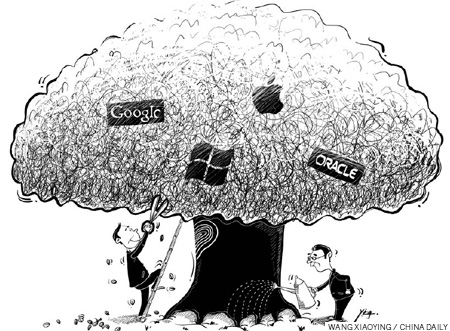View
Idea of entrepreneur as a helpful hero
By Esther Dyson (China Daily)
Updated: 2010-11-26 08:00
 |
Large Medium Small |

Earlier this month, I sat on a panel in Monte Carlo, a hot spot of the establishment, discussing the question, "Why can't Europe be more like the US?" The formal name of the panel was "Silicon Envy: Will Europe ever build the next new media giant?"
But I think people are focusing on the wrong question. After all, what is the actual value of a Microsoft or an Apple, Oracle, Google or Twitter to a country in the first place? Surely, it's not the taxes paid by Bill Gates or Steve Jobs or Larry Ellison or Sergey Brin, nor even the taxes paid by their companies (of which other countries get a share anyway).
The real value created by many of these companies is much broader. Their employees become productive workers and, ultimately, consumers in some local market. And their products and services generate value even when pirated or used in countries where the provider doesn't sell much advertising. A country can get all these benefits without actually being the entrepreneur's home country.
But there are two benefits that do redound to a hero entrepreneur's home country. First, the local entrepreneur serves as a role model. He (rarely she) encourages people to dream - and also to take risks, persist in the face of long odds, and generate economic activity.
All over the world, little boys study math and science in the hope of becoming the next Bill Gates. But having your own local Gates is much more compelling. I'll always remember what a Russian friend said to me back in 1991 at a conference I organized in Hungary: "Of course we all know about Bill Gates in Russia. But he's not relevant to us: he lives in the US; he went to Harvard. But seeing what the Hungarians have done - that means something to us. It lets us dream of what we could do ourselves."
Yet sometimes I think this hero-entrepreneur myth is dangerous. In an economy such as the United States, where startups are revered, people who would make perfectly good project supervisors or salespeople establish their own companies, starving the ecosystem of middle managers.
Thousands of perfectly smart and highly useful people feel inadequate because they are not heroes. Many make the wrong career choices in search of glory.
For example, I know a brilliant chief technology officer (CTO) who started a company that never gained traction because he simply couldn't manage it. His investors (including me) encouraged him to merge with a competitor that had a great salesman as its CEO. But the two CEOs couldn't agree on terms, and now the CTO's company is dead while the other company struggles with inadequate technology.
In cultures where startups are considered risky and not quite honorable, it's also hard for entrepreneurs to find troops to play the non-starring roles. Most people would rather work for an established company, or for the government.
So, rather than focusing on the supposed shortage of entrepreneurs, consider for a moment the very real shortage of qualified people willing to work for them. For every Bill Gates or Steve Jobs who founds a company, a healthy economy needs tens, hundreds and ultimately thousands of such troops.
But right now, in the Silicon Valley that almost every country envies, TechCrunch reports that Google just paid an engineer $3.5 million in restricted stock to keep him from defecting to Facebook. Moreover, Google will give every employee a 10 percent raise in January.
This is an even bigger problem for the hundreds of startups that want to hire engineers but can't afford to compete with the likes of Google and Facebook. And, while the US has many engineers of its own (and imports others, despite restrictive immigration policies), many other countries do not, exacerbating the challenges smaller startups there face in getting qualified people.
Both in the US and elsewhere, most education systems aren't churning out the kinds of people startups need to hire.
The problem is not just a lack of engineers, but also of people with the necessary business, financial, and communication skills.
Many large companies in emerging markets such as Russia and India train their own employees, because college graduates often lack the requisite skills. That's good for large companies, but it leaves behind smaller companies that can't afford to train the middle ranks or compete for the best. This misalignment of incentives stifles many economies.
Countries that want to be successful overall, rather than merely play host to a couple of billionaire entrepreneurs who eventually will decamp to a tax haven, must focus on building a strong educational system for all their citizens. That is where the notion of the entrepreneur as hero can be helpful - by inducing more young people to study math and science, which will help them in many ways even if they pursue a non-technical career.
How to encourage entrepreneurs? Instead of subsidizing startups directly, governments should become good customers for them. The US government is a huge customer for all kinds of software companies, just as it helped build the airline industry long ago by contracting out postal service transportation.
Entrepreneurs tend to go where the money is, but their companies stay and provide value (and jobs) where they can find good customers and good employees.
It is the well-educated people who can get the best jobs - and thus earn the money to buy the kinds of goods and services that they and their fellows produce.
The author, chairman of EDventure Holdings, is an active investor in a variety of startups around the world.
Project Syndicate.